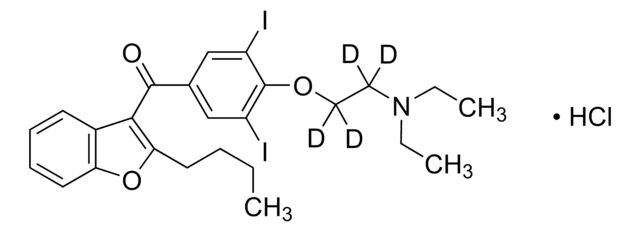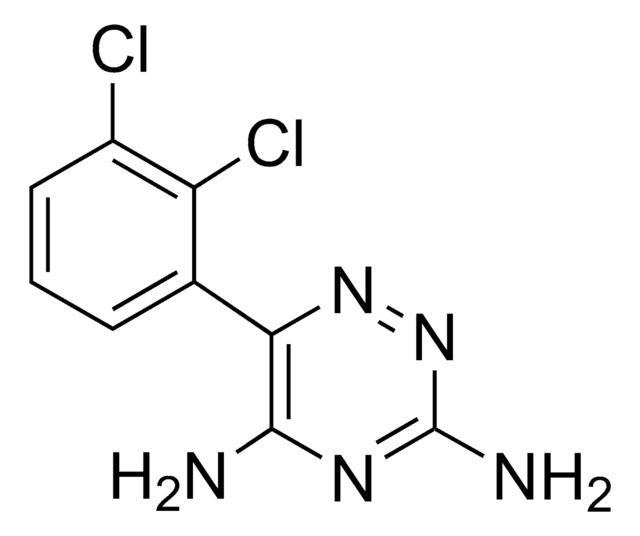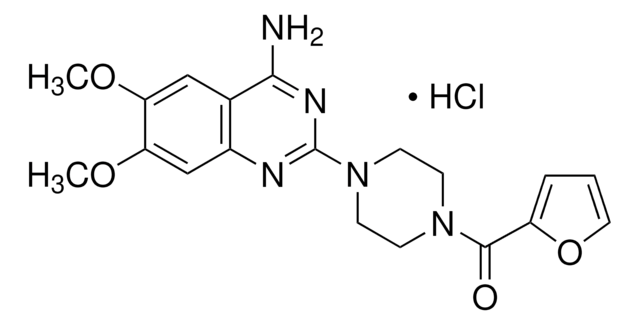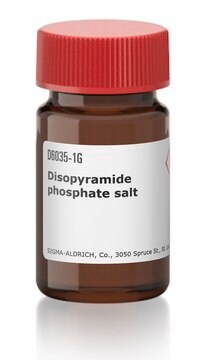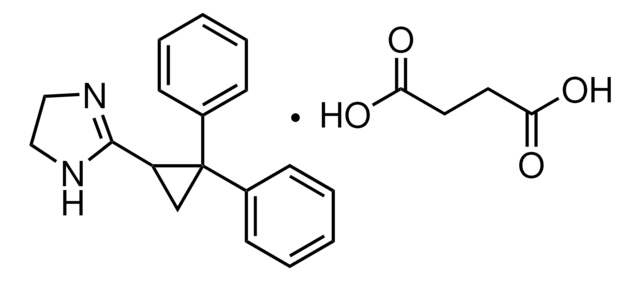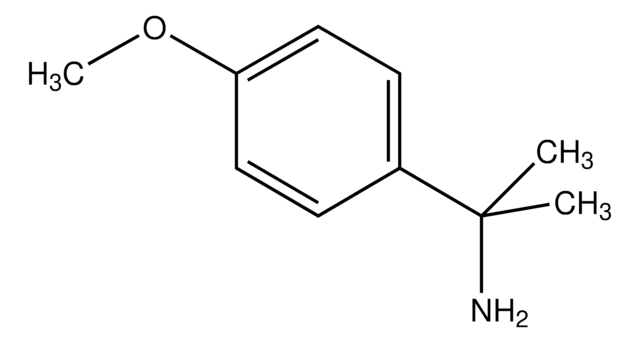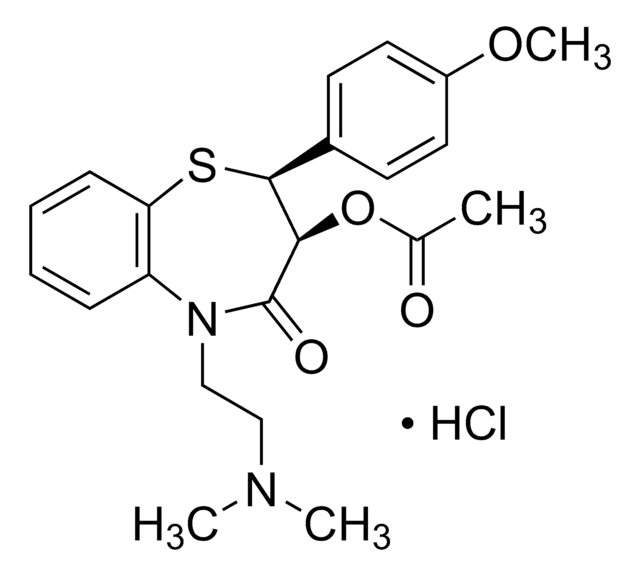P0026
Pilsicainide hydrochloride
≥98% (HPLC)
Synonyme(s) :
N-(2,6-Dimethylphenyl)tetrahydro-1H-pyrrolizine-7a(5H)-acetamide hydrochloride, Pilzicainide hydrochloride, SUN 1165
About This Item
Produits recommandés
Niveau de qualité
Essai
≥98% (HPLC)
Forme
powder
Conditions de stockage
desiccated
Couleur
white to beige
Solubilité
deionized water: >5 mg/mL
Température de stockage
room temp
Chaîne SMILES
Cl.Cc1cccc(C)c1NC(=O)CC23CCCN2CCC3
InChI
1S/C17H24N2O.ClH/c1-13-6-3-7-14(2)16(13)18-15(20)12-17-8-4-10-19(17)11-5-9-17;/h3,6-7H,4-5,8-12H2,1-2H3,(H,18,20);1H
Clé InChI
NZOSVDHCTCLGEB-UHFFFAOYSA-N
Application
- to study its effects on electrophysiological parameters in guinea pig pulmonary vein preparation
- to study its effects on Ca2+ release and arrhythmic events in Andersen-Tawil syndrome induced pluripotent stem cells (ATS-iPSC)-derived cardiomyocytes
- to study its electrophysiological effects on the guinea pig atrium
Actions biochimiques/physiologiques
Caractéristiques et avantages
Mention d'avertissement
Danger
Mentions de danger
Conseils de prudence
Classification des risques
Acute Tox. 3 Oral
Code de la classe de stockage
6.1C - Combustible acute toxic Cat.3 / toxic compounds or compounds which causing chronic effects
Classe de danger pour l'eau (WGK)
WGK 3
Point d'éclair (°F)
Not applicable
Point d'éclair (°C)
Not applicable
Faites votre choix parmi les versions les plus récentes :
Certificats d'analyse (COA)
Vous ne trouvez pas la bonne version ?
Si vous avez besoin d'une version particulière, vous pouvez rechercher un certificat spécifique par le numéro de lot.
Déjà en possession de ce produit ?
Retrouvez la documentation relative aux produits que vous avez récemment achetés dans la Bibliothèque de documents.
Articles
Voltage-gated sodium channels are present in most excitable cell membranes and play an important role in generating action potentials.
Notre équipe de scientifiques dispose d'une expérience dans tous les secteurs de la recherche, notamment en sciences de la vie, science des matériaux, synthèse chimique, chromatographie, analyse et dans de nombreux autres domaines..
Contacter notre Service technique